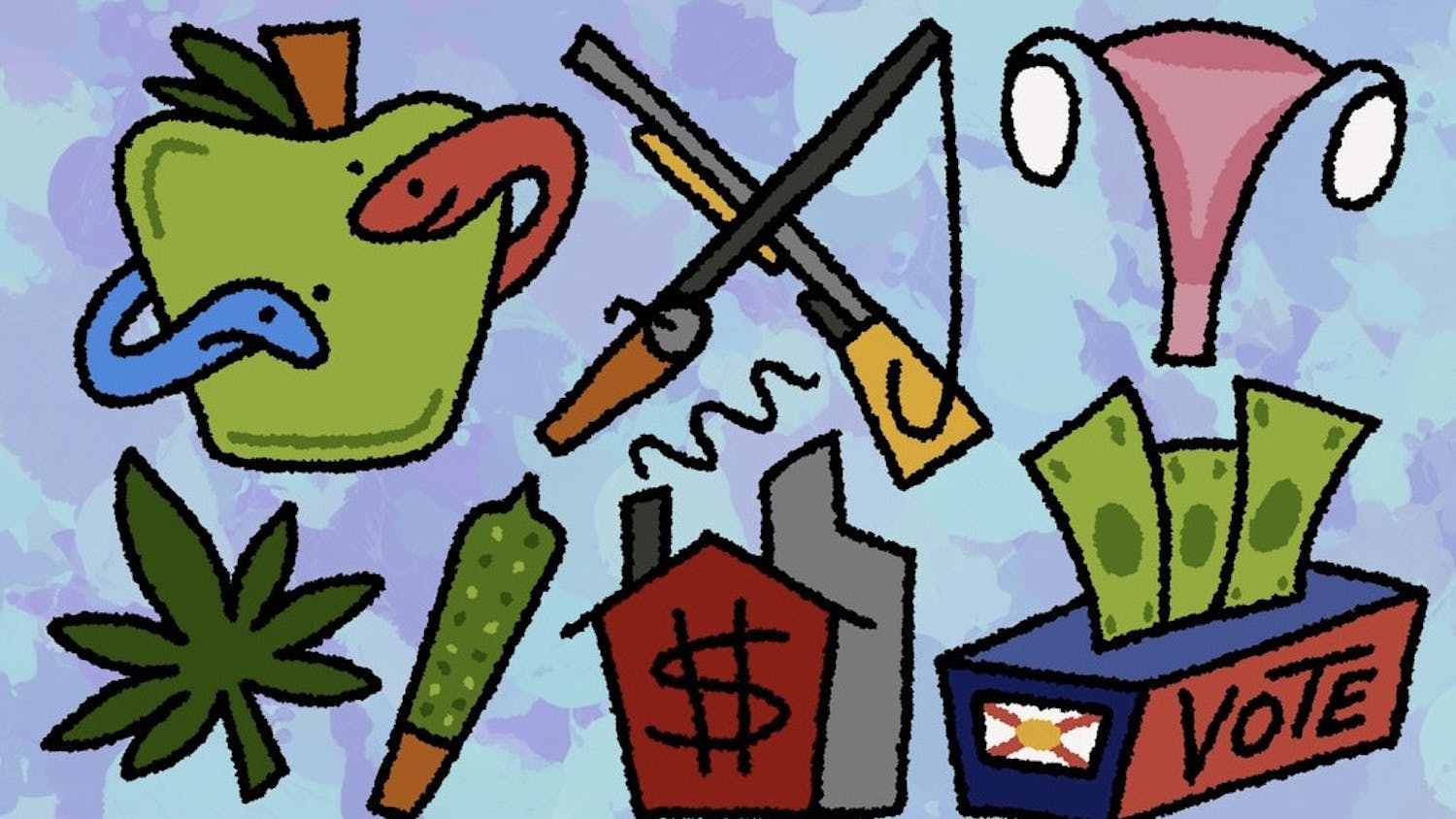From 1982 to 2005, CNN’s well-known political debate program “Crossfire” was a centerpiece of American politics and media. The program featured two co-hosts, one liberal and one conservative, debating against each other and with one or two newsmaking guests — individuals of recent political importance.
Throughout its run, “Crossfire” was maligned by critics as a pointless and destructive demonstration of hyper-partisanship. Viewers of “Crossfire,” the critics argued, were exposed to a loud and angry debate in which claims were never fact-checked, and both sides ended the program more divided and entrenched in their beliefs than ever before.
“Crossfire” met its initial demise in 2004 when comedian and “The Daily Show” host Jon Stewart appeared on the program. Stewart lambasted the format and content of “Crossfire.”
“You have a responsibility to the public discourse,” Stewart said, “and you fail miserably.”
Stewart also said referring to “Crossfire” as a format for constructive political debate was akin to “saying pro wrestling is a show about athletic competition.”
Stewart’s comments resonated with Americans fed up with the partisanship of Washington reflected in the media, and CNN cancelled “Crossfire” in 2005.
Now, after an eight-year hiatus, “Crossfire” is back with a vengeance. Starting on Sept. 9, CNN brought back “Crossfire” without significant changes.
The show now features four alternating co-hosts. Stephanie Cutter, deputy campaign manager for President Barack Obama’s 2012 re-election campaign, and Van Jones, senior fellow at the Center for American Progress and a former adviser to Obama, represent the liberal side of the political spectrum. Conservatives are represented by former House Speaker Newt Gingrich and political commentator S.E. Cupp.
As if the rancorous and counterproductive debates featured on “Crossfire” were not harmful enough by themselves, the show is now making a mockery of CNN’s own ethics policies.
Before the “Crossfire” premiere, Rick Davis, CNN’s executive vice president of news standards and practices, said Gingrich would be expected to disclose all financial ties and interests related to guests invited on the show after questions arose concerning Gingrich’s political action committee, American Legacy PAC, which has given tens of thousands of dollars in donations to a wide range of conservative political candidates.
“If Newt is helping fund a candidate and that candidate’s on the show, or being discussed on the show, of course he’ll disclose that,” Davis said.
Newt Gingrich hosted Sens. Rand Paul (R-Ky.) and Ted Cruz (R-Texas) to discuss current political issues such as government spending and the economy.
Gingrich failed to disclose that American Legacy had donated thousands of dollars to the campaigns of both candidates.
Rather than reprimand Gingrich for his blatant ethical violations, CNN instead elected to rewrite its ethics policies to completely exempt “Crossfire” from the transparency that Americans have come to expect from the media.
In a statement released to Media Matters for America, a media watchdog group, Davis made clear that even basic standards of financial disclosure would not apply to the hosts of “Crossfire.”
The statement read:
“We are clarifying the policy and making it clear Newt Gingrich is not in violation. The policy: If a Crossfire co-host has made a financial contribution to a politician who appears on the program or is the focus of the program, disclosure is not required during the show since the co-host’s political support is obvious by his or her point of view expressed on the program.”
Davis’ rationalization of Gingrich’s behavior is deeply disturbing and misleading. Political views within both the Republican and Democratic parties are diverse and wide-ranging. His assumption that all liberals and conservatives share complete ideological purity limits the scope of the political debate and allows the hosts of “Crossfire” to promote their financial interests without any disclosure whatsoever.
Even if “Crossfire” were not rife with questionable ethical practices, its angry and unproductive style of debate would still be a blight on the American political landscape.
CNN’s abandonment of all standards of disclosure for “Crossfire” sets a dangerous precedent for the rest of the media.
Elliot Levy is a UF political science and public relations junior. His column runs on Wednesdays. A version of this column ran on page 7 on 10/2/2013 under the headline "‘Crossfire’ makes mockery of news ethics"





